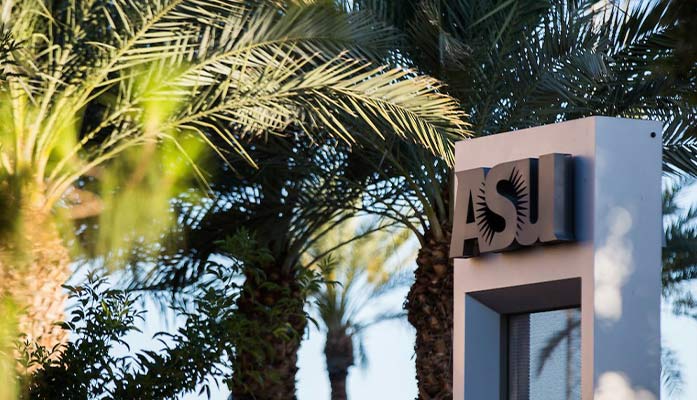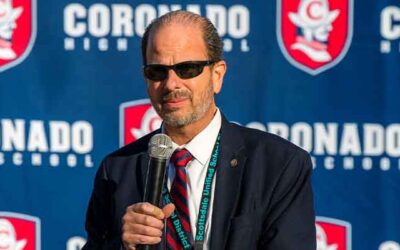By Ann Atkinson |
Higher education, ideally a bastion of free thought and inquiry, should eagerly embrace a multitude of voices and perspectives—we usually call that thinking and learning. Yet, in practice, the ubiquitous doctrines of inclusion inscribed into university charters are not without exceptions. These exceptions materialize from the judgments of self-appointed arbiters of speech, who wield the authority to classify ideas and individuals as hateful and unsafe as they break from a general orthodoxy of perspective. Disguised as protections of students from pernicious notions, these arbiters diligently strive to condemn, censor, and chill speech they do not like – while university leadership does nothing.
I experienced this exact condemnation when I orchestrated a university-sanctioned event in my capacity as the Executive Director of the T.W. Lewis Center for Personal Development at ASU’s Barrett Honors College. The event, titled “Health, Wealth, and Happiness,” took place at ASU Gammage Auditorium on February 8, 2023. Esteemed experts joined the panel, with Dr. Radha Gopalan, a distinguished heart transplant cardiologist, engaging on health; Robert Kiyosaki, expert on money and the acclaimed author of “Rich Dad Poor Dad,” delving into wealth; and Dennis Prager, co-founder of PragerU and, for over 40 years running, a nationally syndicated radio host, addressing happiness. Complementing the panelists were speakers Charlie Kirk, the visionary behind Turning Point USA, and Tom Lewis, a notable businessman, philanthropist, and namesake donor of the Lewis Center.
At Arizona State University (ASU), the culture of arbitration of speech has infiltrated deeply. This might come as a surprise given ASU’s acclaimed reputation for its free speech policies and its president’s commitment to this cause. In June, I published editorials in the Wall Street Journal “I Paid for Free Speech at Arizona State” and in the National Review, “Some Universities Care About Free Speech…Until They Don’t,” in which I revealed the free speech crisis at ASU’s Barrett Honors College while I also praised ASU for its free speech policies, at least as they state them on paper. I had hoped for a steadfast defense against blatant infringements on free speech that undermine ASU’s policies and declarations. Regrettably, my optimism faded. With each day, ASU’s actions, or lack thereof, erode my confidence in their stated defense of free speech.
It is imperative to grasp the suppression of speech in our academic institutions and to fully comprehend the essence of true freedom of thought which can only come from true freedom of speech. Only then can we embark on endeavors that genuinely promote the education and advancement of society.
ASU President Michael Crow may declare that “speakers speak at ASU,” but can we truly consider speech as free when over 80% of the faculty retaliates against speech they deem “wrong”? Do free speech ideals hold when deans prescribe limitations on speakers’ speech? Can we claim freedom of speech when marketing materials are removed due to faculty offense, while contrasting viewpoints bask in promotional spotlight? Is speech uninhibited when professors dedicate valuable class time to condemn the speech of other units? Does true free speech persist when professors discourage student participation in an event? And then stand vigilantly at the event entrance, watching attendees approach. Can we genuinely say that speech is free when college deans fire leaders and dismantle centers that uphold values no longer in harmony with the college’s leanings? The resounding answer is no. This is free speech under siege.
On August 3, 2023, a group of scholars who convened at Princeton established the “Princeton Principles for a Campus Culture of Free Inquiry.” This assembly distinctly underscores the pressing predicament faced by numerous higher education institutions that falter in upholding cultures of robust and uninhibited speech.
The Princeton Principles squarely confront this concern: “Some members of the university community argue that robust freedom of inquiry permits speech that can ‘harm’ students’ well-being or hinder institutional efforts to attain particular conceptions of social justice or ‘diversity, equity, and inclusion.’”
The case of the Lewis Center is illustrative, with 39 of the 47 Barrett Honors College faculty launching a nationwide condemnation campaign against the Health, Wealth, and Happiness program, speakers, donors, and staff. The Barrett deans actively endorsed this campaign and exercised censorship of speech the faculty found objectionable. The campaign led to intimidations and firings, which is to say prices to pay—sanctions—for exercising free inquiry and speech.
Having policies and ratings extolling free speech alone isn’t enough if university leadership doesn’t enforce their own standards. My experiences at ASU revealed a bureaucratic machinery that prioritizes safeguarding the institution’s interests over addressing free speech violations. I spent months reporting these violations internally and escalated the matter to ASU’s upper echelons and even testified in a legislative hearing. As of mid-August 2023, ASU and its board maintain that they have discovered “a series of examples of unfettered free speech,” aligning with the arbiters.
Self-governance alone proves inadequate in safeguarding our First Amendment rights on campus. The arbiters of speech are not likely to relinquish their control in the absence of decisive action by leadership. The responsibility rests upon parents, students, donors, the media, concerned citizens, and elected officials to unite and reestablish freedom of speech without fear of retribution, for there is no freedom of anything if it comes with a penalty for its exercise, including speech.
The Princeton Principles underscore that “If there is clear and convincing evidence that faculty members and administrators are not adequately fulfilling their responsibilities to foster and defend a culture of free inquiry on campus, other agents including regents, trustees, students, and alumni groups in the wider campus network may and indeed should become involved.”
Gratitude must be extended to parents, students, alumni, donors, lawmakers, and concerned citizens for following this story who rallied behind the cause of free speech. Special acknowledgment should be given to leaders like Arizona Senator Anthony Kern and State Representative Quang Nguyen for co-chairing the Joint Legislative Ad Hoc Committee on the Freedom of Expression at Arizona’s Public Universities. And sincere thanks should be extended to Arizona Speaker of the House Ben Toma and Arizona Senate President Warren Petersen for their unwavering support of free speech for all.
Despite receiving broad support, sustained vigilance is imperative. We must persist in recognizing speech suppression and holding university leadership accountable for defending the realm of free speech, even for ideas deemed offensive, such as, laughably, health, wealth, and happiness.
Ann Atkinson can be reached at her Twitter handle, @Ann_Atkinson_AZ.








